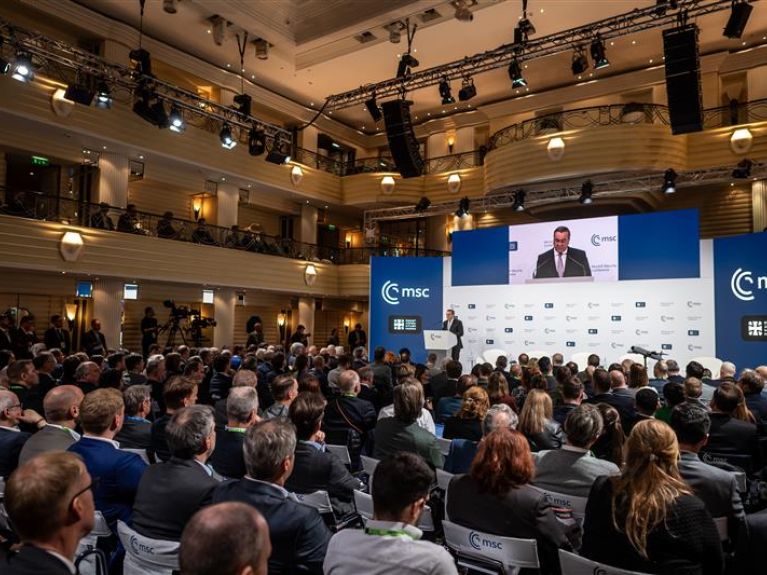Munich Security Conference begins
Bringing together policymakers, diplomats and academics, this year’s Munich Security Conference is focusing on Ukraine and the Middle East.

Munich (d.de/dpa) – In the midst of debates about the US government’s new direction on the Ukraine conflict and the Middle East, high-ranking politicians and diplomats are attempting to set a new course at the Munich Security Conference. Around 60 world leaders, including Federal Chancellor Olaf Scholz are expected to attend, along with 150 government ministers and representatives of numerous international organisations. The speech given today by US Vice President J.D. Vance is the focus of particular interest.
In the run-up to the conference there has been movement around possible negotiations towards a peace deal in the war in Ukraine, but initially without the direct involvement of EU states. US President Donald Trump has held telephone calls with Vladimir Putin in the Kremlin and with Zelenskiy. The US expects European states to bear the bulk of the military and financial burden for protecting Ukraine’s future security.
The Federal President of Germany Frank-Walter Steinmeier will open the Munich Security Conference on Friday afternoon with his assessment of the foreign and security policy situation. European Commission President Ursula von der Leyen and Germany’s Defence Minister Boris Pistorius will also give speeches. Foreign Minister Annalena Baerbock and Minister of the Interior Nancy Faeser have also confirmed their attendance.
The key issues on the agenda for the conference include the situation in Israel and the Palestinian territories, and developments in Syria. A busy programme of discussions will also discuss issues such as the architecture of global finance, the resilience of democracies, climate change, nuclear security, and the future of artificial intelligence.
However, the conference has been overshadowed by the attack which took place in central Munich on Thursday.
A car was driven into a group of demonstrators, leaving at least 28 people injured, some seriously. The Bavarian Prime Minister Marcus Söder spoke of a “bitter day for Munich.”